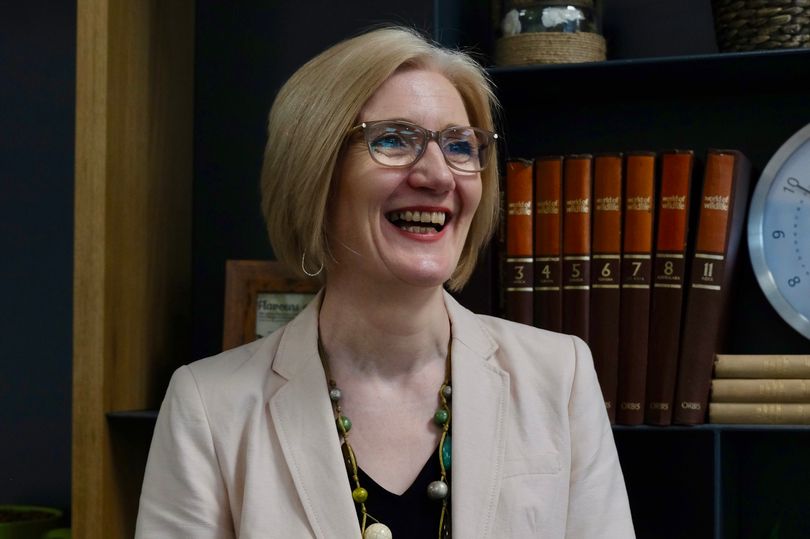New research reveals persistence and creativity key to business success
19th November, 2020

As part of its ongoing partnership with Newcastle University Business School, Ward Hadaway is supporting new research examining the impact of COVID-19 on UK firms, with a focus on identifying the skills and traits needed by North East businesses to thrive during uncertain times.
The research conducted by Newcastle University Business School and Leeds University Business School, in collaboration with ZHAW School of Management and Law, Switzerland comes as The Journal and Ward Hadaway continue the series ‘Inspiring Growth,’ shining a light on the Fastest 50 growing firms in the region and celebrating their growth, innovation and commercial achievements. The full list for 2020 was published last week here.
Dr Cezara Nicoara, lecturer in marketing at Newcastle University Business School, surveyed over 150 business owners and chief executives from a cross-section of SMEs in the North East as part of the research. The purpose has been to take a snap shot of how businesses have responded to the pandemic to inform future decision making, and to revisit this over the coming months and even years to see how attitudes change.
Commenting on the findings, Dr. Nicoara said: “Business leaders responding to the study said that ‘persistence’ and ‘creative problem-solving’ are two of the skills ranked most highly in terms of their ability to respond effectively to the COVID-19 pandemic as businesses adapt. Conversely respondents whose businesses have adapted the least ranked persistence as unimportant, showing a strong correlation between an openness to change and persistence. Business leaders’ approach to decision making in a crisis is one of the core focuses of our research going forwards, so we will drill down into this further over time.
“Firms also reported the move to remote working as a positive influence. This is after many years where remote working has been something which many organisations have viewed with interest but also scepticism and concern. It is will be interesting to see the impact that an enforced period of working from home has on its adoption long term, and the resulting significant sociological change to the work and home life of the region.
“Digital transformation obviously will play a key role in the success of many organisations moving forwards, as businesses pivot their operations to be able to trade effectively online. The study emphasised that the skills that have the most positive effects on these transformation projects, and therefore where businesses should focus some of their skills development efforts, include digital literacy, goal planning and creative problem-solving.”
Newcastle University Business School offers businesses access to over 150 world-class academics and 4,000 students. The global team drives excellence in research, innovation and education, as part of an international network, addressing global business, policy and societal issues.
Joanne James is Director of Executive Education. She said; “In a rapidly changing environment, developing effective leadership skills that allow creativity to thrive can bring new ideas to shape a responsible future for business and society.
“Through our Executive MBA (EMBA) and Strategic Leadership MSc programmes, we aim to develop leaders who are dynamic, creative and tuned into the future of work. Whether you’re a small business, large corporate organisation or a public body, we can help you to build new skills, develop new ways of thinking and work with you to investigate real-world challenges aligned to your business objectives.”
Damien Charlton, a partner at Ward Hadaway, said; “We know businesses across the world continue to face significant challenges as the pandemic continues. Certain sectors have obviously been more badly affected than others, but the research provides clear evidence of where to focus skills development and effort to reap rewards.
“As business leaders, we may need to think completely outside the box in terms of how we operate in this new world. Ensuring that you have the right skills, traits and competencies within your organisation will be critical for future success. Businesses need to listen – to research like this, to what their clients and teams are saying, and to what technology can offer – to give them a very clear steer in terms of where they should focus their efforts.”
Dr Nicoara plans to conduct follow up research in the next six months to assess how businesses are performing as they continue to adapt to the challenges thrown at them by the pandemic. Ward Hadaway will share the results so businesses can tap into up-to-date knowledge and data, supporting effective decision making.
To find out more about how Newcastle University Business School can help your organisation, contact Joanne James joanne.james2@newcastle.ac.uk.
This article originally appears in The Journal on 19 November 2020.
Please note that this briefing is designed to be informative, not advisory and represents our understanding of English law and practice as at the date indicated. We would always recommend that you should seek specific guidance on any particular legal issue.
This page may contain links that direct you to third party websites. We have no control over and are not responsible for the content, use by you or availability of those third party websites, for any products or services you buy through those sites or for the treatment of any personal information you provide to the third party.
Topics:

